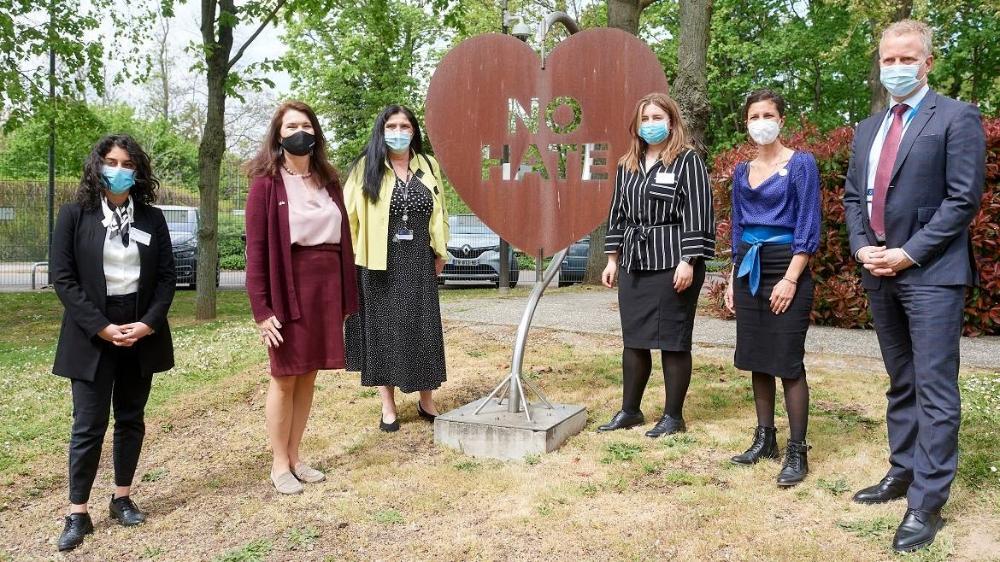| |  | | | From left to right: Rosaline Marbinah, Ann Linde, Antje Rothemund, Alice Bergholtz, Marie Farigoules, Ambassador Mårten Ehnberg, Permanent Representative of Sweden to the Council of Europe | | | | | Ann Linde, OSCE Chairperson-in-Office (re-) visits the European Youth Centre | | | | Ann Linde, the OSCE Chairperson-in-Office and Minister of Foreign Affairs of Sweden, visited the Council of Europe on 28 April 2021. She exchanged views with the Committee of Ministers Deputies and met with Council of Europe Secretary General Marija Pejčinović Burić, to discuss co-operation between the two organisations.
Her agenda also included a visit to the European Youth Centre to host a roundtable on youth participation in legislative and policy processes, chaired by Alice Bergholtz, Advisory Council representative. Youth policy has been a permanent theme on the OSCE agenda for several years now. Ahead of the visit, Ann Linde said: “Young people must have the power to shape their own lives and have an influence on the development of society. They have the right to be heard and their opinions must be taken into account. Their contribution to the work of the Council of Europe and the OSCE is important and valuable”.
It is not Ann Linde’s first time inside the European Youth Centre. From 1984 to 1988, she was Secretary General of LSU, the National Youth Council of Sweden, and in this capacity was a member of the Advisory Council on Youth set up by the Council of Europe’s Committee of Ministers and made up of representatives of youth NGOs and networks. Later, as Ann Linde worked for the government, from 1991-1993 she represented Sweden on the European Steering Committee for Youth, composed of ministries and bodies responsible for youth issues of the Council of Europe member states. So, the minister has been active on both sides of the Council of Europe youth sector’s ground-breaking co-management system. | | | Read more › |
| | |
|
| | |
|